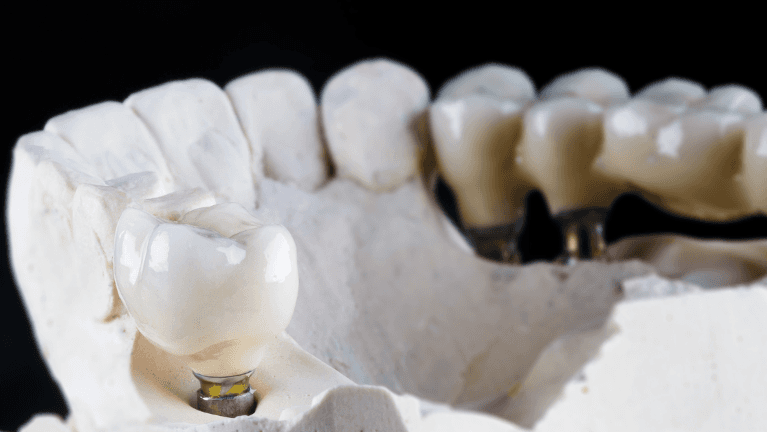
Dental bridges are an investment in the appearance and functionality of your teeth. They offer significant benefits for your overall oral health and your long-term comfort. If you’re considering a dental bridge or already have one, it’s crucial to understand how to maximize their longevity. This blog discusses the lifespan of dental bridges and practical ways to extend their durability.
The Typical Lifespan of Dental Bridges
Dental bridges last for five to fifteen years on average, though many patients enjoy their bridges even longer with proper care. The longevity of your dental bridge depends on several factors, including its location in your mouth, oral hygiene habits, and personal lifestyle choices. When well maintained, traditional bridges often last for ten years or more, while implant-supported bridges can last longer due to their enhanced stability.
Factors That Influence Bridge Longevity
While dental bridges degrade naturally over time, it’s crucial to understand the potential variables that influence their lifespan. A thorough understanding of these variables can help you make informed decisions about your dental bridges and how to care for them.
Material
Modern dental bridges are typically made from high-quality porcelain, zirconia, or porcelain fused to metal. Each material offers different strengths and cosmetic benefits. Porcelain-fused-to-metal bridges combine durability with a natural appearance. In contrast, ceramic-only bridges provide superior aesthetics but are generally less durable.
Oral Hygiene
The health of your supporting teeth (abutment teeth) directly impacts the longevity of a bridge. These teeth must remain strong and cavity-free to support the bridge effectively. Brushing and flossing twice a day is an essential habit that prevents decay. Regular professional cleanings are crucial for maintaining your bridge and its supporting teeth.
Bridge Location
The location of your dental bridge can impact its resilience to daily wear and tear. Bridges in the back of the mouth must endure more biting force than those in the front. The repetitive stress on back teeth affects bridges, potentially shortening their typical lifespan. Habitual teeth grinding can also reduce the structural integrity of dental bridges.
Essential Tips for Extending a Bridge’s Lifespan
Caring for your dental bridges isn’t complicated, but it requires dedication. You must be highly disciplined to protect your overall oral health and the integrity of your bridges. Use the following proven strategies to help your bridges last as long as possible:
Impeccable Oral Hygiene
Brush twice every day using a soft-bristled toothbrush and high-quality toothpaste. Pay special attention to the connection point between the bridge and your gumline. This area is where harmful bacteria accumulate, so it’s important to clean it thoroughly. You can use an interdental brush or floss threader to clean under the bridge, preventing decay in the adjacent teeth.
Specialized Tools
It can be beneficial to invest in purpose-designed dental tools for cleaning bridges. Water flossers are particularly effective for removing debris from hard-to-reach areas around and under the bridge. Ask Dr. Nargiz Zadeh for recommendations for the best tools to meet your needs.
Overnight Protection
If you grind your teeth at night, speak to your dentist about a custom nightguard. This simple protective device can prevent premature wear caused by grinding and clenching. While dental bridges are strong, they are not indestructible, so protecting them is crucial.
Dietary Choices
As mentioned, dental bridges can be damaged by excessive force. You should avoid biting down on hard foods like nuts and candy. Chewing on ice can also be detrimental to the structural integrity of bridges. Sticky foods like toffees and fruit roll-ups may dislodge your bridges, so eat them slowly and carefully.
Address Problems
If you notice any changes in how your bridge fits or feels in your mouth, don’t wait to visit your dentist. Early intervention can prevent minor issues from becoming major problems that could compromise the bridge’s longevity. Contact your dentist immediately if you have difficulty chewing or notice a loose bridge.
When to Consider Bridge Replacement
Even with excellent care, dental bridges won’t last forever. Visit a dental professional for confirmation, but always look for signs indicating it’s time for replacement. The following common indicators are signs of bridge degradation:
- Changes in the fit or comfort
- Visible wear, chips, or cracks
- Persistent pain or discomfort around the bridge
- Difficulty cleaning the surrounding area
- Changes in the alignment of your bite
Ensure Long-Term Dental Bridge Success
The initial cost of dental bridges can be significant. Still, their potential lifespan and impact on oral health make them a worthwhile investment. Following proper care guidelines will protect your bridges and preserve your overall dental health, avoiding costly dental work in the future.
If you’re considering dental bridges or have concerns about your existing bridges, don’t hesitate to contact Dr. Nargiz Zadeh. We will schedule a consultation for a thorough assessment of your concerns so we can advise you on the best course of action. Your oral health is our priority.